PSHE Curriculum Intent
Our intent is to provide an academic PSHE curriculum that provides opportunities for students to
reflect on and clarify their own values and attitudes and explore complex and sometimes conflicting
range of values and attitudes they encounter now and in the future. We also aim to reflect the PSHE
Association syllabus through a thematic approach which aims to equip students to live healthy, be
safe and productive, capable, responsible, and balanced lives through the themes of health and
wellbeing, relationships and living in the wider world. We seek to assist students in developing
powerful knowledge, skills, and attributes they need to keep themselves healthy and safe, and
prepared for life and work in modern day Britain.
Currently under the Education Act 2002/Academies Act 2010 all schools must provide a balanced and
broadly-based curriculum which: • promotes the spiritual, moral, cultural, mental, and physical
development of pupils at the school and of society, and • prepares pupils at the school for the
opportunities, responsibilities, and experiences of later life.
Student Learning Journey
The three themes will be covered twice in each year giving students the opportunities to develop
attributes such as curiosity, independence, resilience, self-esteem risk management, teamwork, and
critical thinking. The intention is that students will learn about being confident in addressing the
challenges of effective learning and making a full and active contribution to society. They will have
opportunities to revisit their learning about Health, Safety and Wellbeing, Living in the Wider World
and Relationships and Sex Education in order to build on and deepen prior knowledge and
understanding. The curriculum acknowledges and addresses the changes young people experience,
beginning with the transition to secondary school, the challenges of adolescence and their increasing
independence.
In Key Stage Three, students will have two lessons a fortnight and one lesson a fortnight in Key Stages
Four and Five. Throughout students will follow a thematic approach to PSHE taken from the PSHE
Association.
Alongside this the school’s collective worship and form time programmes have been developed to
support and assist in the delivery of PSHE to all students. Students will also be encouraged to speak
openly about their opinions on the debates that have been decided for each unit in line with the
school’s oracy framework.
How is PSHE taught?
Each lesson will begin with a starter which is questioning students with their understanding on the
lesson topic. Students are introduced or reminded of subject-specific vocabulary linked to the topic
and these will be used in the lesson. A range of materials will be used to address the topic matter
such as a wide variety of case studies, newspaper articles or silent reading activities. Students will
complete at least one written and one reflection activity per lesson. There will also be opportunities
for students to express their own opinions through class discussion.
Homelearning
Students will be sent home learning tasks in key stage three. This may be in the form of a quiz using a
site such as quizzes to check prior knowledge or knowledge gained in the lesson. Or students may be
asked to complete some work towards the debate question set for the unit of learning.

